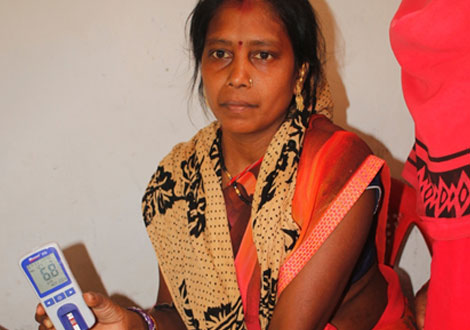Lalima – Loha Le Anaemia Se
by Mohini Saha, Narharpur
Scorching sun of long days in mid-May beat down upon them while working in the farm-lands. When they work all day stooping down on these fields in July, heavy downpour drench them. They are ‘farmers’, producers of our food. Ganita Komra is one of them in a far flung village in Chhattisgarh, called Masulpani. Bearing with the heat and water is a physical challenge in itself. But Ganita, at 22, has another physical woe to grapple with. And that shadows Ganita’s even when she’s doing her household chores.
“I find it extremely tough to work in the farm or do my household chores. I suffer from dizziness and often become very weary.”
And Ganita isn’t alone suffering from such a health condition. Like Ganita there are millions others in villages of India who deal with similar perils, which is ascribed to lack of haemoglobin in blood, i.e. Anaemia. In Chhattisgarh alone, around 40 percent of the rural women are anemic and if you glance through National Family Health Survey-4 2015-16 it’ll be shocking to see that 67.7 percent of the rural girls and women of Uttar Bastar Kanker are anemic. If that was not enough to present the grim picture of women’s situation in the area, let’s make it clear here that Ganita and women like her didn’t even know that the reason behind their fatigue, menstrual complications, and perennial weakness is lack of hemoglobin in their blood.
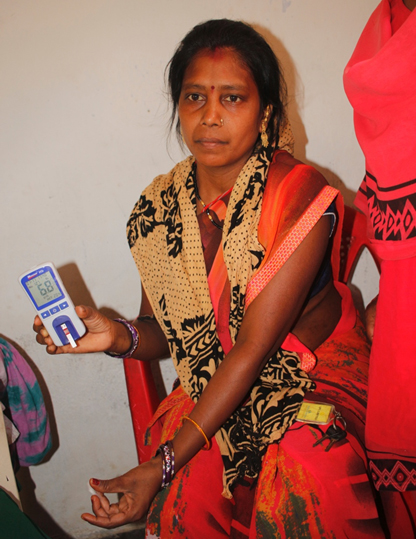
Shashikala Markam, a Anganwadi Sevika shared that “in our society, people are socialized in a way that health and wellbeing of a woman is not even considered important either by members of the family or by the women themselves. Also we don’t have all remedies to address anaemia. “It’s nothing new to us, or mothers also suffered from the same kind of health problems. We are used to it” says Ganita, almost accepting these as a part of their life.
While engaging with the women SHGs, we found that the actual issue of Anemia is more gruesome than what all those data and records indicate. Several women who got their test done were found with haemoglobin below 7 grams. There have been several government initiatives dedicated to children and pregnant women like regular iron tests, supplements and medicines. But women who are not pregnant often remain excluded, especially the adolescent girls. And they are the most vulnerable.
PRADAN Narharpur team conceived an idea to highlight this issue by conducting haemoglobin test for every woman (14-49 years aged) of the block and sensitizing them to challenge and improve the condition. But we found it difficult to reach out to every woman of the block all by ourselves. Rounds of discussions with the district administration and the health department were organized. The idea was liked by all and our constraints were understood. Within the next few weeks it was agreed that PRADAN would facilitate and support the district administration to design and implement a project towards achieving the goal of testing health of every woman of the area.
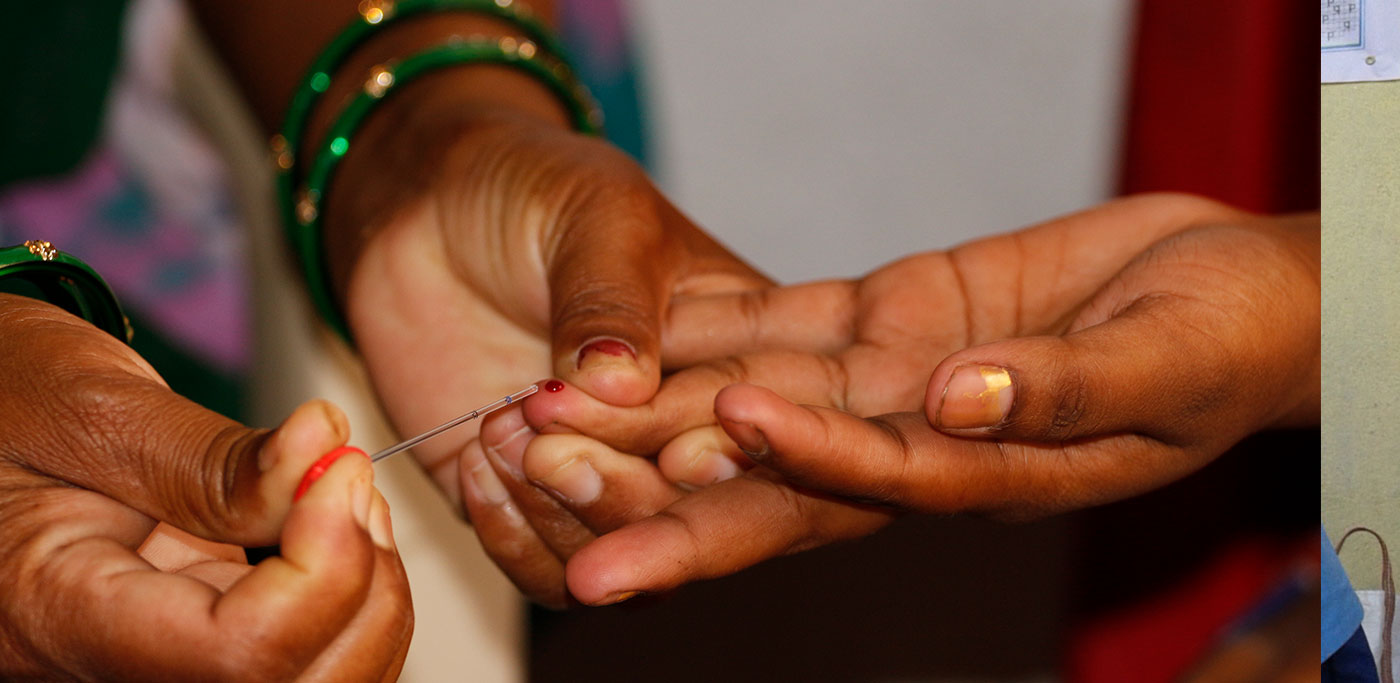
Accordingly ‘Lalima – Loha Le Anemia Se’ was launched in May 2019 in two PRADAN operational blocks, Narharpur and Bhanupratappur of Kanker district. The project was funded through District Mineral Foundation in convergence with health department, Integrated Child Development Services (ICDS) and DAY-NRLM. PRADAN, as a knowledge partner, facilitated the perspective building and technical level training of health department, ICDS frontline staffs, community leaders and collective members around malnourishment and anaemia in specific. Health department was engaged to ensure anaemia and sickle cell anaemia tests of every eligible woman in the villages.
“We find it extremely worrisome when we see seven out of every ten women we test are found anaemic”, mentioned Shashikala Markam, an Anganwadi worker.
Naturally, the results came as a great shock. The administration prepared to roll out the project in all the seven blocks of Kanker district. In total, 144,372 tests were conducted out of which 77,238 women were found anemic and 8,513 were found severely anemic (<7 gram). There was no time to waste and as per our plan, iron-sucrose injections and regular counseling sessions were arranged for severely anemic women. PRADAN in coordination with the district level DAY-NRLM unit conducted trainings for SHG and village organisation (VO) members, and BMI and MUAC (Mid upper arm circumference) tests for nutrition awareness to foster behavioral change as far as informed and improved dietary practices are concerned.
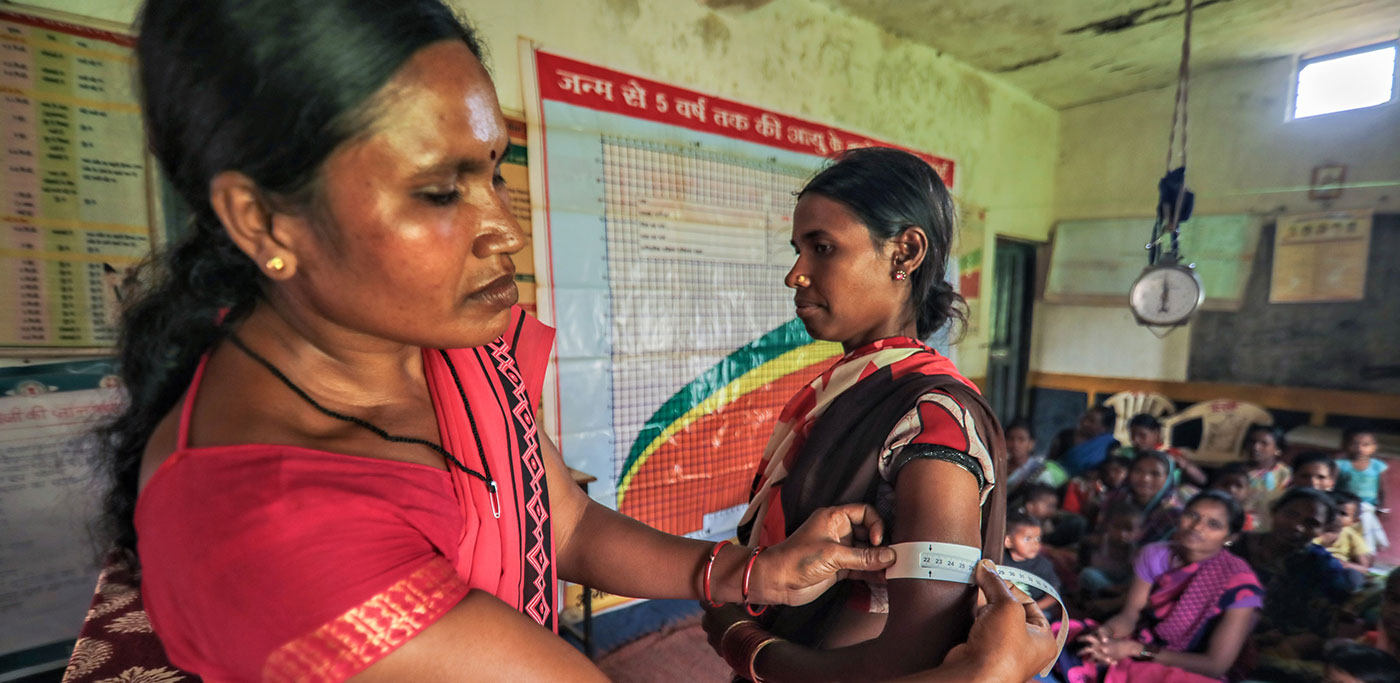
A year passed. Last June, we re-tested all the women. Only 841 women were found to be with hemoglobin lesser than 7 gms in their blood. That’s roughly 10 per cent of the number of severely anemic women if compared with 2019 scenario.
“If we look back then women’s health was never to be found as an agenda of our VO meetings. The health department and Anganwadi centres used to talk about it, that too sporadically. But Lalima opened our eyes. In each of our meetings over the last one year, VO meetings have never missed to discuss around women’s health and women have become aware about the right dietary practices and medical check-up to combat Anaemia” mentioned Kachri Netam, VO active member, Kuralthemli village.
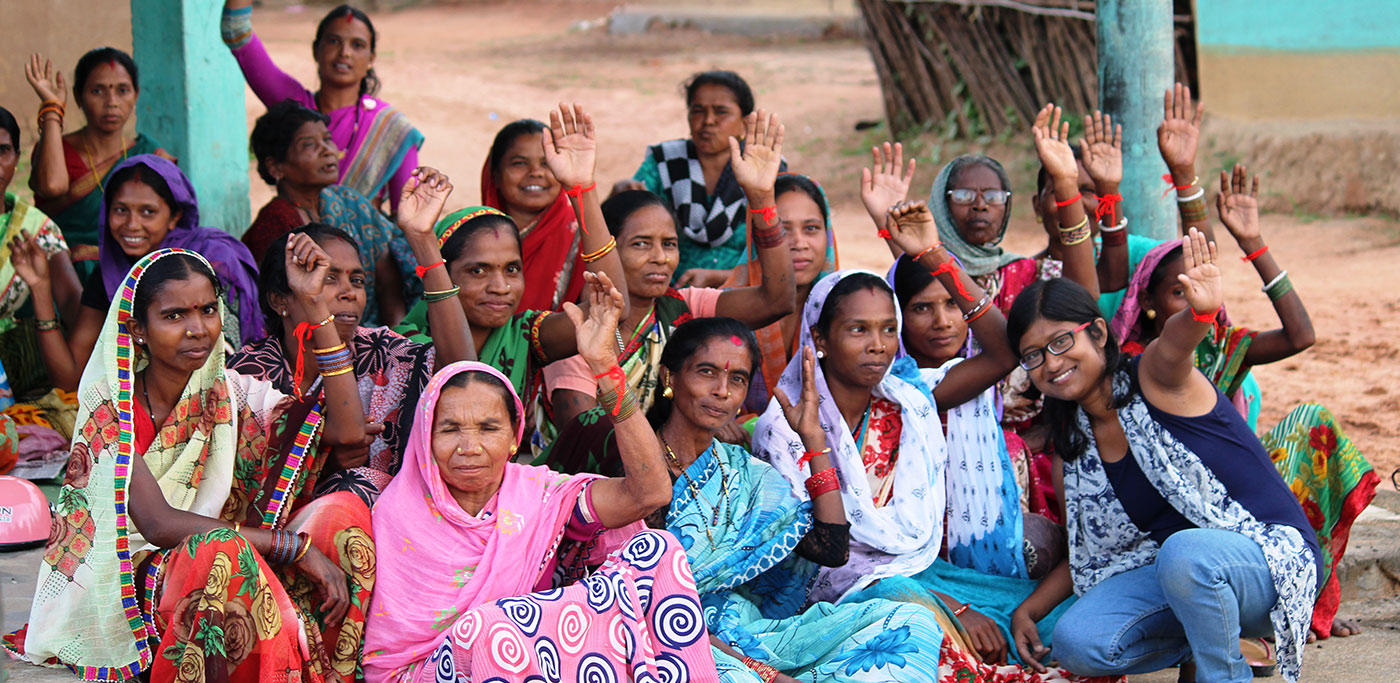
Alone we cannot go far, but if we come together, then covering any distance and tackling any challenge seems possible. This collaboration with the government departments and CSOs proved it yet again. This Poshan Maah (Nutrition Month) Lalima certainly brings in the ray of hope towards overcoming the most complicated challenges. And there can’t be a bigger proof of the success than the sparkling eyes of women from some of the remotest parts of Chhattisgarh.


